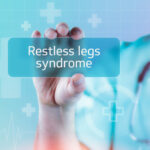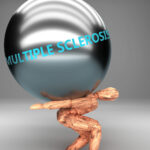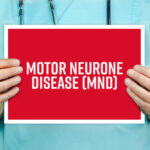There’s no doubt that mental health is a complex topic, with many factors influencing a patient’s psychological well-being. Some of these are within their control, while others relate to external circumstances or genetic makeup.
A few decades ago, discussions around mental health were kept to a minimum, which only served to increase the stigma associated with conditions like depression and anxiety. Today, we understand that these diseases are very common. In fact, Mind reports that 1 in 4 people will experience a mental health problem of some kind each year in England and 1 in 6 people report experiencing a common mental health problem (such as anxiety or depression) every week.
Understanding that these types of conditions are not exclusive and that our friends and family have likely experienced the same symptoms and concerns may make it easier to speak with a professional about your mental health. These statistics also highlight the need for further investment in mental health research and services.
The type of treatment and support your doctor recommends will likely depend on the condition you have been diagnosed with and how long you have been experiencing symptoms. Psychological help, like therapy or counselling, may be prescribed. Alternatively, a doctor may recommend you seek out pharmaceutical strategies to help manage symptoms, including medical cannabis for anxiety.
The link between medical cannabis and anxiety, as well as other mental health conditions, has not always been well understood. Here at MyAccess Clinics, our team of specialists has experience helping patients from all walks of life. We will ensure you fully understand how medical cannabis works and work with you to determine whether this is an appropriate option for you.
Mental health statistics
The Covid-19 pandemic had a significant impact on society. Aside from the direct medical crisis, it quickly became apparent that lockdowns, border closures, and the general feeling of uncertainty was affecting the mental wellbeing of people around the world.
A report commissioned by Mind revealed that in the UK alone, around a third of adults and young people said that their mental health has gotten much worse since March 2020. Loneliness was a significant factor, with 88 percent of surveyed young people revealing that isolation had significantly impacted their overall mental health. Concerningly, 1 in 5 adults stated they did not seek help for their mental health concerns because they did not feel that their problem was ‘serious enough.’
Even outside conditions created by the pandemic, mental wellbeing is a serious problem being faced by all countries around the world.
The role of medical cannabis
Medical cannabis has long been used by medical professionals to manage symptoms associated with conditions both psychological and physical. In fact, there’s evidence of the medication being prescribed by Chinese doctors up to thousands of years ago.
However, it has not always been an approved medication in the UK. It was not until 2018, following extensive campaigning by medical professionals and members of the public, that the medical cannabis was rescheduled from schedule 1 to schedule 2 of the Misuse of Drugs Act 1971, making the medication legal in the United Kingdom as an unlicensed medicine.
In 2022, there are a number of medical cannabis products, also known as cannabis-based-products for medicinal use (CBPMs), available to eligible patients. These products come in a range of forms (including oil, capsules, vapus and flower preparations) and each contain a different concentration of two active cannabinoids — THC and CBD. In addition to these main cannabinoids, a medical cannabis product may contain minor cannabinoids and terpenes from the cannabis plant.
Medical cannabis interacts with receptors that are part of the endocannabinoid system, which helps to regulate pain, mood, memory, immunity, and stress. These receptors, known as CB1 and CB2, are found in high concentrations in areas of the brain associated with the modulation of emotional behaviours. These areas include the pre-frontal cortex, amygdala, and hippocampus. The interaction of cannabinoids and these receptors is believed to explain how medical cannabis may be used to help manage symptoms associated with psychological disorders, including anxiety, PTSD, insomnia, Autism Spectrum Disorder, and Attention Deficit Hyperactivity Disorder.
Accessing medical cannabis
Not all patients will be eligible for CBD for anxiety. While medical cannabis is legal, it is still a heavily regulated product, as are all prescription medications. You will need to have your condition diagnosed by a healthcare professional and have tried a number of other treatments and therapies to manage your symptoms with no success.
At MyAccess Clinics, our team of trained and experienced professionals will take into account your full medical history, in addition to other factors, when deciding whether medical cannabis for anxiety is an appropriate option. To learn more, contact MyAccess Clinics today.





